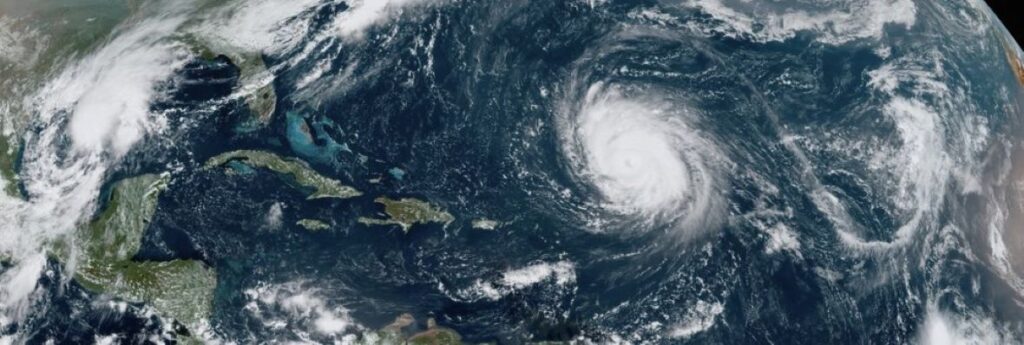They were right: Climatologists in May predicted that 2020 would be a bad year for hurricanes. And with a month and more still to go in an Atlantic season that has been called “crazy,” the forecast has already been fulfilled. And not only are storms hitting places they usually don’t, there have been so many that the Greek alphabet has been called in to name them all.
This is only the second time US National Hurricane Center forecasters have had to go Greek for names, with the last time being 2005. Tropical Storm Wilfred, the last of traditional names, officially formed late last week, just an hour before another storm, which forced the centre to dust off the name “Alpha.” A third tropical depression in the western Gulf of Mexico – “Beta” – followed immediately, making it three storms in three hours.
“It’s crazy,” said University of Miami hurricane researcher Brian McNoldy. “This is just off the charts. We’ve made a joke of breaking records.”
One weather-watching wag on Twitter talked of “Hurricane Pi on Thanksgiving.”
Wilfred, Alpha and Beta set records for earliest 21st, 22nd and 23rd named Atlantic storms, beating 2005 by a few weeks.
As for Alpha, the geographically misplaced storm promptly sloshed ashore in Portugal – an area where storms don’t generally brew. That’s so unusual that Alpha barely shows up on the hurricane centre’s real- time storm tracking map, which is focused on the Americas. Only the “Al” of its Greek name showed on screen.
But Alpha fits with the rest of this season in another way. About half of the storms this busy hurricane season have only lasted a few days and have been quite weak, McNoldy said. Vicky, for example, popped up quickly and soon dissipated without much notice. And with 22 storms, only two of them — Laura and Teddy — reached major hurricane status, which is also kind of unusual, McNoldy said.
McNoldy said the environmental conditions reduce high-level winds enough for storms to form, but not enough for them to strengthen or even survive long. La Nina, which is a cooling of parts of the equatorial Pacific that changes weather worldwide, is a factor in making some but not all of the Atlantic more active, he said. But it doesn’t explain Alpha forming, he said.
With at least another month of the heart of the busiest part of hurricane season to go, the hurricane centre tweeted out the entire 24-letter Greek alphabet, with a red slash through Alpha.
McNoldy joked that after that there’s no official name list, but ventured that the Russian alphabet is still available.
RELATED STORY: Stormy Weather

